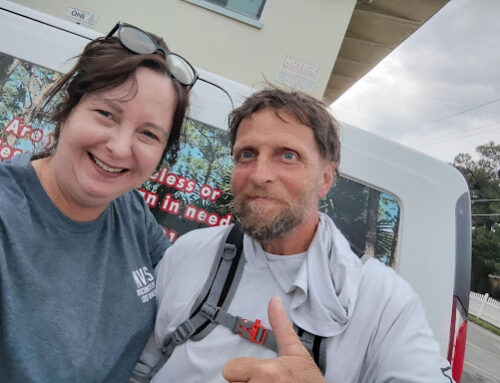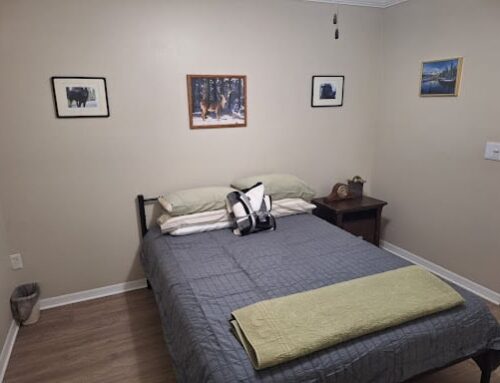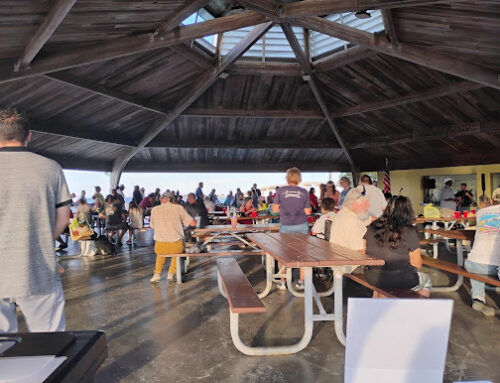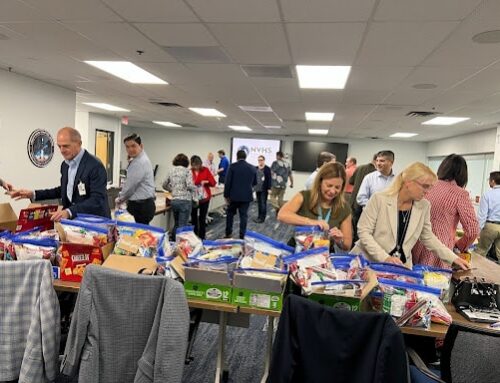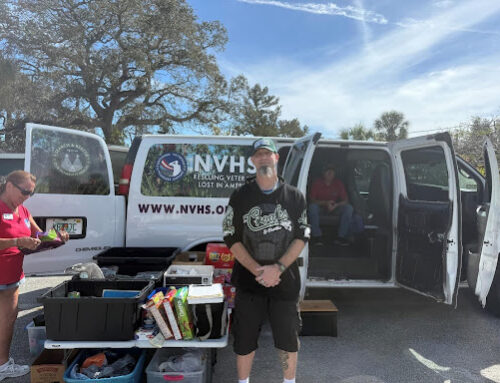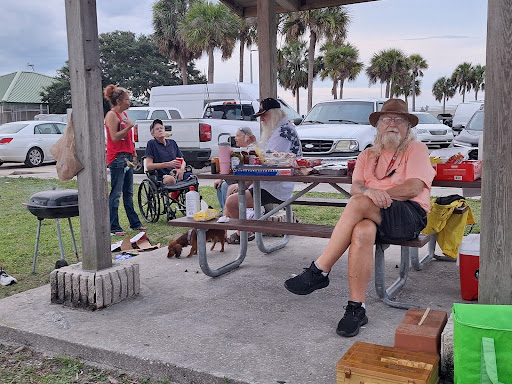 September marks Suicide Prevention Month, a time to confront a crisis that touches far too many veterans. For those experiencing homelessness, the day-to-day fight for survival can deepen feelings of isolation, despair, and hopelessness. Left unchecked, these pressures can quietly build, creating moments of intense danger that go unnoticed.
September marks Suicide Prevention Month, a time to confront a crisis that touches far too many veterans. For those experiencing homelessness, the day-to-day fight for survival can deepen feelings of isolation, despair, and hopelessness. Left unchecked, these pressures can quietly build, creating moments of intense danger that go unnoticed.
There is a way forward. By learning to recognize distress, offering support, and connecting veterans to trusted resources, we can transform despair into hope and vulnerability into safety. Every conversation, check-in, and act of compassion can give a veteran a lifeline and a reason to keep moving forward.
National Veterans Homeless Support (NVHS) is here to help veterans, families, and communities take those steps with clarity and care. Reach out today and be the turning point in a veteran’s life. Your attention, your action, and your support can spark hope where it is needed most. Connect with NVHS now and discover how guidance, support, and practical resources can help a veteran regain hope and a sense of safety.
Suicide Prevention Gives Homeless Veterans Support and Access to Life-Saving Resources
Veterans who are experiencing homelessness face unique stressors that make suicide prevention especially urgent. Lack of stable housing, limited access to healthcare, financial uncertainty, and diminished social support all create compounding pressures. These factors can leave veterans feeling unseen and overwhelmed, making early intervention critical. Recognizing the signs of distress and knowing how to respond can be life-saving.
Suicide prevention is not just the responsibility of professionals. Friends, family, neighbors, and businesses all have the power to make a difference by noticing warning signs, fostering supportive environments, and connecting veterans to trusted resources like NVHS.
Recognizing the Signs a Veteran May Be in Crisis
Understanding when someone might be struggling is the first step in preventing a tragedy. Veterans at risk may show subtle or overt signs, including:
- Withdrawal from social interactions or favorite activities
- Expressions of hopelessness or talking about wanting to die
- Sudden changes in mood or behavior
- Increased substance use or self-harm tendencies
- Neglecting personal care or basic needs
These signs are important to notice, but action is what truly matters. If you see a veteran exhibiting any of these behaviors, reaching out immediately can save a life.
How Individuals Can Make a Difference
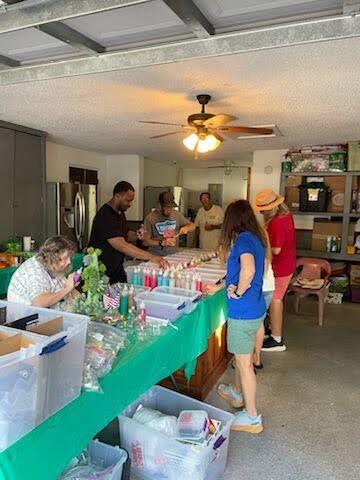 Every person has a role to play in suicide prevention. Small, intentional actions can create an enormous impact. Here are ways individuals can help:
Every person has a role to play in suicide prevention. Small, intentional actions can create an enormous impact. Here are ways individuals can help:
- Reach Out With Compassion: A simple conversation can remind a veteran that they are seen and valued. Listening without judgment and offering reassurance is more powerful than many realize.
- Know the Resources: Familiarize yourself with local and national support lines. Veterans can call or text the Veterans Crisis Line at 988 (Press 1) or start a chat via 988lifeline.org for immediate support. NVHS is also here to provide guidance and help connect veterans to life-saving care.
- Stay Connected: Consistent contact, whether through phone calls, visits, or messages, can provide a lifeline for someone feeling isolated.
- Educate Yourself: Understanding suicide prevention strategies and crisis intervention techniques equips you to act with confidence.
By taking these steps, individuals can provide immediate support that stabilizes and protects at-risk veterans. Take action with NVHS and transform worry into support, isolation into connection, and despair into hope for a veteran in need.
How Families Can Support Veterans
Families often serve as the first line of support. Veterans may confide in loved ones before reaching out to professionals, making family involvement crucial. Ways families can help include:
- Learning to recognize early warning signs of distress
- Creating a safe environment to discuss mental health openly
- Encouraging professional help and guiding veterans to resources such as NVHS
- Participating in community or peer support networks
Family support provides not only emotional care but also helps veterans navigate practical barriers such as transportation, medical appointments, or housing resources, which can reduce stress and promote stability.
How Businesses and Communities Can Get Involved
 Suicide prevention is a shared responsibility, and businesses and local communities have unique ways to contribute:
Suicide prevention is a shared responsibility, and businesses and local communities have unique ways to contribute:
- Host Awareness Events: Businesses can organize talks, workshops, or fundraisers to raise awareness about veteran mental health and suicide prevention.
- Promote Peer Networks: Community centers and veteran-focused organizations can facilitate social connections, reducing isolation.
- Offer Practical Support: Providing job opportunities, mentorship programs, or volunteering initiatives gives veterans tangible ways to engage and regain confidence.
- Share Resources: Display information about crisis lines and support services in accessible locations, from storefronts to community boards.
By fostering environments of awareness, connection, and practical support, communities can directly reduce risk and help veterans thrive.
The Role of NVHS in Suicide Prevention
National Veterans Homeless Support is more than an organization; it is a safety net for veterans experiencing homelessness and facing mental health challenges. NVHS provides guidance, resources, and direct support to prevent crises before they escalate. Key ways NVHS helps include:
- Connecting veterans to crisis intervention and counseling services
- Offering housing support to reduce instability and stress
- Building peer networks to combat isolation
- Providing advocacy and guidance for accessing local VA programs and benefits
NVHS helps veterans navigate the complexities of mental health care and homelessness simultaneously, ensuring that each person receives the attention and support they deserve. To further strengthen long-term stability, we also encourage veterans to enroll in VA Healthcare.
Eligibility generally requires an honorable or general discharge, and veterans should be prepared to provide a copy of their DD214, proof of income, and insurance information (if applicable). By helping a veteran take this step, you can be the reason they gain access to consistent care and support and the reason a veteran sees a brighter tomorrow. Your involvement can spark real change in someone’s life.
Taking Action During Suicide Prevention Month
September is a reminder that prevention starts with awareness and action. This month, consider:
- Checking in with veterans in your life, even if they seem okay
- Learning how to start a conversation about mental health
- Volunteering, supporting organizations that help at-risk veterans, or participating in the NVHS Annual Homestretch 5K to fund outreach and housing programs.
- Donating to programs that provide housing, counseling, or peer support
Every gesture counts. Small actions can create ripples that reach far beyond what you might imagine, providing hope and life-saving intervention.
Resources and Immediate Help
If a veteran is in immediate danger, contact trained professionals without delay:
- 988 Suicide & Crisis Lifeline – Call or text 988 for confidential support 24/7
- National Veterans Homeless Support (NVHS) – Reach out for guidance, housing assistance, and mental health support
Having these contacts readily available can make the difference between a crisis and a safe resolution.
Why Your Action Matters
Veterans who are experiencing homelessness already face daily struggles that can feel insurmountable. By noticing the signs of crisis and stepping in with support, each individual, family member, and community group has the power to intervene, stabilize, and connect veterans to the help they need. Your engagement can transform despair into hope and isolation into connection.
Take the First Step Today
Suicide prevention is not just awareness; it is action. NVHS is here to guide veterans, families, and communities in taking meaningful steps that save lives. Every conversation, every check-in, and every connection matters.
Volunteer with us today and become a lifeline for a veteran in need. Your care, your presence, and your action can turn a moment of despair into a turning point toward hope, safety, and stability.

